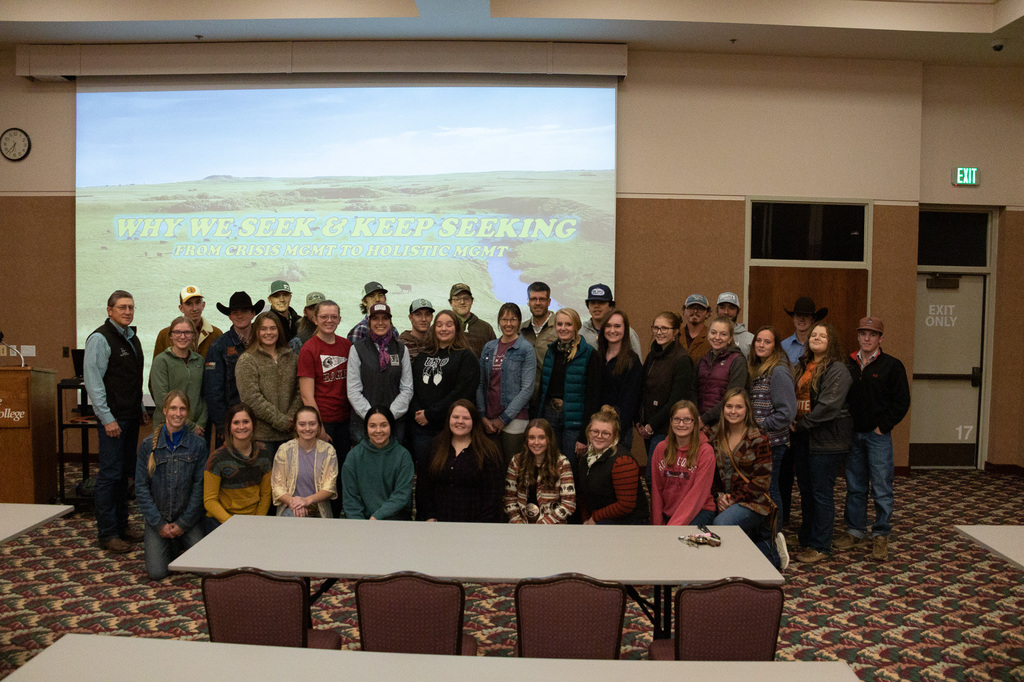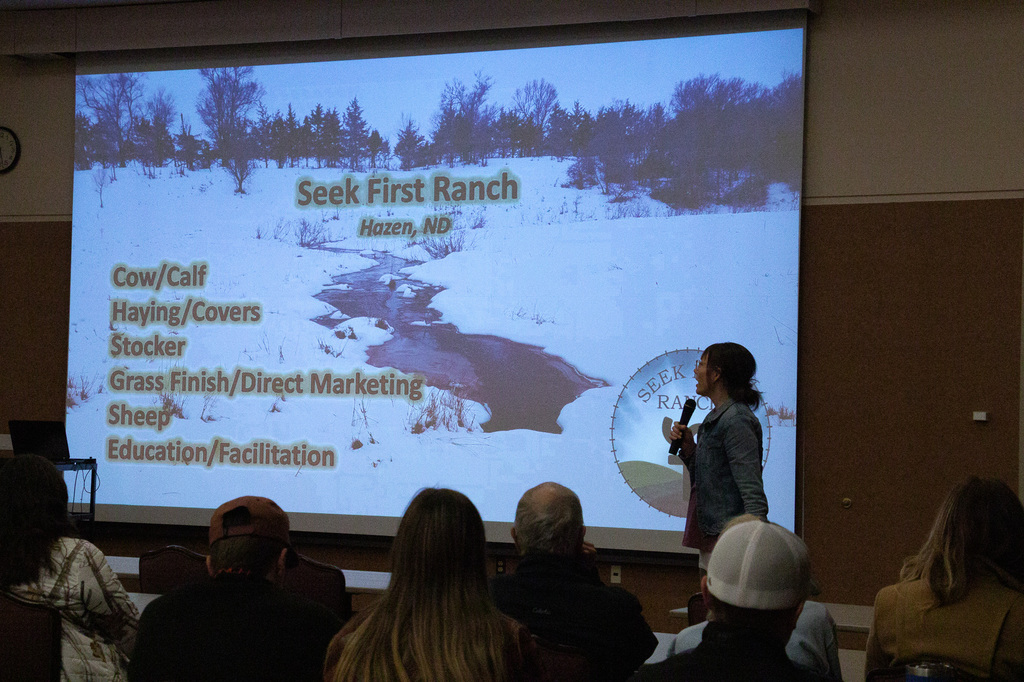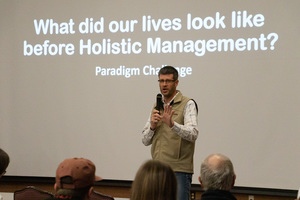North Dakota couple share holistic ranch management experience

CHADRON – Joshua and Tara Dukart of Hazen, North Dakota, spoke to an audience that included about 35 Chadron State College students during a Nov. 11 presentation in the Student Center. The couple’s appearance was sponsored by the Nebraska Grazing Lands Coalition, Nebraska Extension, and Nebraska Environmental Trust.
The Dukarts spoke about the holistic framework they embrace that includes intentional balancing of social, ecological, and economical considerations on their multi-generational family ag operation. They have a cow-calf operation, and since moving to the ranch in 2016, have added several enterprises such as stocker calves, grass finished and direct market beef, sheep for weed control, and education/facilitation presentations.
“It is not all a utopia and fantasy, but I realized [moving to] the ranch could be a great opportunity,” said Josh, who had previously been an ag engineer.
Tara, who did not grow up on a ranch, said the move to the ranch, where Josh’s parents lived, included struggles for her.
“But the more we communicated, the better it was. Each of us identified the interests, talents, and skills we could bring to the enterprises,” she said. “Older generations may not know what it looks like to step aside or step down, and younger generations may not know what it looks like to step up. Those role reversals need to be discussed so everyone has time for input and to make adjustments.”
Tara said she initially feared the lack of community in the rural setting, but, in hindsight, she realized she felt less connected to their neighbors when they lived in a residential setting.
Tara challenged the audience to be aware of useful and counterproductive paradigms.
“If we are not aware of our paradigms, then how do we know if they are hindering us or putting up barriers to achieving the life we truly desire,” Tara said.
As an example, Josh reviewed his family’s traditional method of harvesting, storing, and feeding hay to livestock and found there were more than 20 steps involved. Once the family analyzed the process, they came up with an alternative that works better for them. They plant cover crops and string electric fence throughout the hayfield to allow livestock to bale graze one section at a time.
Additionally, Josh observed their horses pawing through deep, crusty North Dakota snow to eat cover crops such as turnips the Dukarts had planted as a supplemental food source. He noticed that cattle, who will not typically paw away snow, followed the horses around the pasture to access the uncovered greens.
During a related discussion on efficiency versus effectiveness, Josh shared a story about the live stream on their ranch.
“We were tired of beaver killing trees along our stream, so we hired a trapper to remove them. It was efficient, but it was not effective because it resulted in erosion. We learned from that experience. We let the beaver come back and our riparian areas are thriving,” Josh said.
Category: Campus News, Range Management


